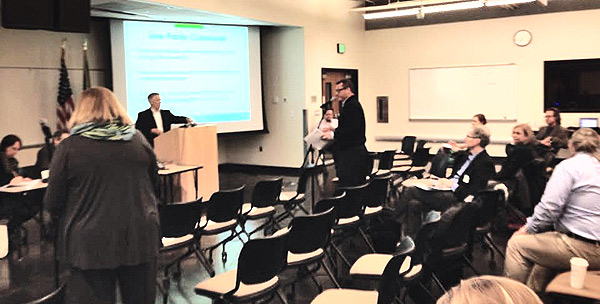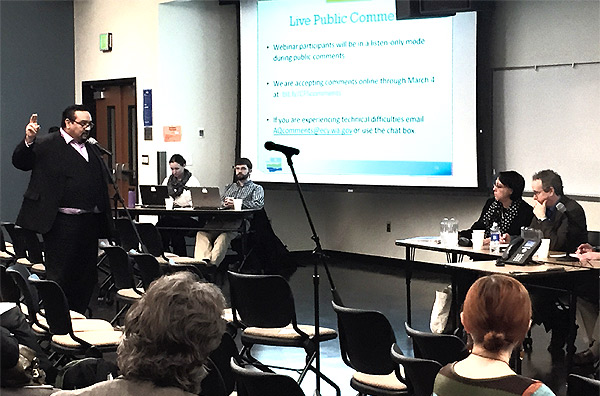
Last night I teamed up with Washington Community Action Network Political Director Mauricio Ayon to testify at a Washington Department of Ecology hearing on the proposed Clean Fuels Standard, which would establish a requirement that oil refineries and distributors cut carbon pollution from gasoline and diesel by 10 percent over 10 years.
Needless to say, there are big economic benefits in adopting these standards, which incentivizes the development of a variety of clean fuels and technology solutions, like advanced biofuels, electricity, natural gas and propane.
The Alliance and our groups across the country who are part of our network believe in creating strong, durable, local economies that don’t ship economic gains to off-shore tax havens or Wall Street. We believe that building strong, local economies is the key to sustainable and equitable prosperity.
But the status quo presents us with a formula for instability and continued widening of wealth and income inequalities.
We spend $14 billion a year on oil, most of which goes out of state. By doing so, we doom the movement for local, clean energy innovation. We doom our economy to be more susceptible to falling apart at the seams when Wall Street has an off day. We doom future generations from the right to clean air.
Adoption of the standards would present locally produced alternatives to dirty oil.
It would also create jobs. Environmental Entrepreneurs estimates that every 1 million in advanced biofuels produced creates nearly 30 direct and indirect jobs.
On the other side of the balance sheet, there is a very real cost to society of health degradation from dirty air and dirty water, and these standards would mitigate those ill effects.
But there is more to this argument, particularly around equity. It was a poignant moment in the room when Mauricio spoke about how this is an issue of environmental justice. A report by the University of Washington and Puget Sound Sage found diesel exhaust exposure was significant in low-income areas like Georgetown, Seattle, where this hearing was taking place. Mauricio pointed out that about 88 percent of students at Concord Elementary School, just a couple miles away from the hearing room, were students of color.
“The people who contribute the least to pollution, have the most to suffer because of it,” he said.

Finally, while adoption of the Clean Fuels Standards would serve to strengthen our fragile economy, at the end of the day, that argument, frankly, should not even matter. We should adopt these standards because it is the right thing to do. It’s good for equity, good for health, good for our future.
•••
Video of the testimony: